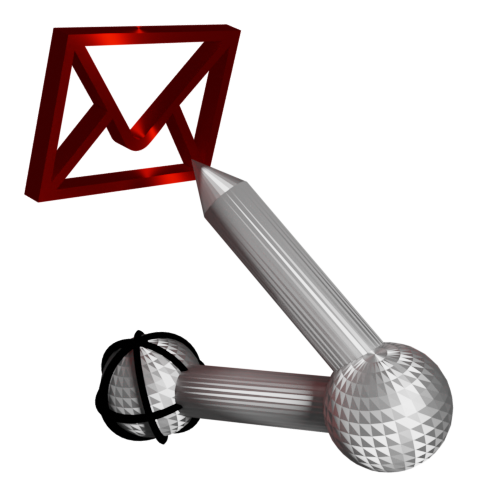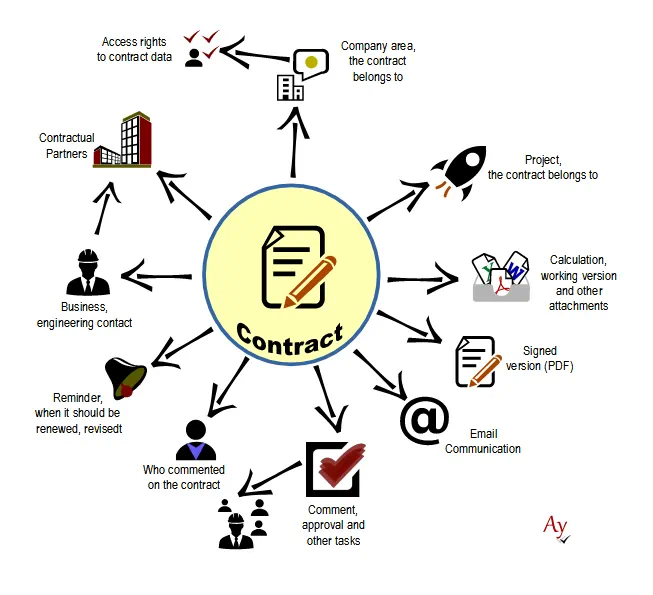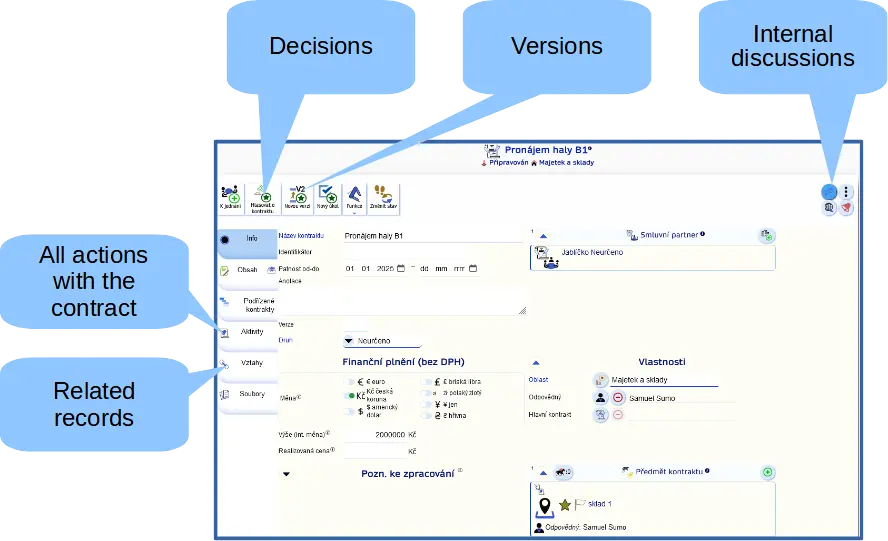AyMINE – Technical documentation
Modules
Integration with ERP Abra Gen
 Task, project & quality management
Task, project & quality management
Manager approval with the task report
Why some data can't be deleted
Adminitration of areas, projects, calendars
Region / project / methodology
Change management process in a project
GDPR and record of qualifications
Qualification of user or contact
Right to Manage Qualifications
Failure Analysis for an Individual Property of a Component or Process
FMEA – Probability of Detection
FMEA – Probability of Occurrence
 Task, project & quality management
Task, project & quality management
Administration of the Task Management Module
System rights for the task management module
Improvements and Preventive Measures
Methodology and Quality Management systems
What a methodology / QMS consists of
Problems, tickets and their management
Collaborative Resolution of Multiple Problems
Customer Service Response Generation
Incident and Quality Issue Management
Objects affected by the problem
Problems, Incidents, Helpdesk Tickets
Return project plan by baseline
Sample tasks and methodologies of the area
Effect of the task on the right to modify the attached object
The person responsible for the task
Working procedure – task definition
Objects related to the task pattern
 Contacts and directories module (CRM)
Contacts and directories module (CRM)
Order overview for customer groups
 Contacts and directories module (CRM)
Contacts and directories module (CRM)
System Permissions and CRM Module Settings
Send bulk messages in compliance with GDPR
How to correctly forget a person's details
Unsubscribe and set preferences
for bulk mail
 Web management and automation
Web management and automation
Receiving a message from the web
Human resources
Personalistics – User Permissions
Human Resources module security
Manage department / division data
Overview of Personnel Information for pracov# Employment Contract
Synchronizing staff and system users
 Products, assets and sales
Products, assets and sales
Received order for goods or services
Finance management
Metrics and Measurements
Technical Modules
Sabre plugin module
Enterprise Architect connector
Database link to Enterprise Architect database
Enterprise Architect connector
System Modules
 The AyMINE Framework Module
The AyMINE Framework Module
AyMINE — Tips for Mobile Usage
Configure how your system looks and works
Gestures and Keyboard Shortcuts
More about how the system works
Private notes and tags for objects
Overview of Modules and Record Types
Filtering in the list of records
 System Management
System Management
Additional functions with files
Copying and moving files between objects
Files (documents) linked to the object
Formatted texts in the application
Gateway settings for external messages
IMP gateway settings for email communication
Internet Call Gateway Settings
Message with the outside world
 Contracts
Contracts 
Records and active management of contracts / contracts. Serves as a separate record and archive or in conjunction with other modules as part of operational records
Archives and active management of contracts
The main purpose of the archive is to ensure the safe storage of the contract together with the history of its creation.
The archive supports, in addition to the records themselves, the documentation of how the contract was concluded:
- When and who negotiated the contract – meetings and their records
- Where the contract was voted including information on the result of the vote
- The documentation of the contract itself
- The supporting documents that were used to decide on the contract.
All the supporting documents and documentation are the basis for the management to be able to demonstrate that they acted with the care of a good householder when concluding the contract. They are an important basis even when there are problems with the performance of the contract and it is necessary to rely on the supporting documents for any legal acts.

Evidence of the care of a good householder
The archive supports documenting who consulted or approved the contract. Comments, reservations and solutions may be imposed on the contract. It is thus possible to prove in retrospect that the executive, board member or other responsible employee adequately guarded the interests of the company, had opinions drawn up, evaluated the contract by experts and generally did everything possible to ensure that the contract was in the interests of the company.
All information can be generated from the registry and submitted as evidence. The system's security mechanisms prevent antedating and, as a result, the archive provides a faithful overview of how the contract was actually concluded.
Archive from the perspective of company owners
For the owners of the company, including shareholders, a high-quality archive of contracts is a certainty that the processes in the company are subject to control. The register, thanks to the checks and documentability of all acts, creates the necessary information base for the trust that the negotiations actually took place as the managers declare. The impossibility of retrospectively changing anything leads to diligence and prevents dishonest conduct.
Operational records of contracts
Operational records are used to keep track of business activities. Contracts support the link to individual orders, projects or contracts. They are thus at hand whenever it is being resolved how the relations and deliveries were arranged.
